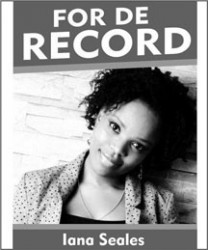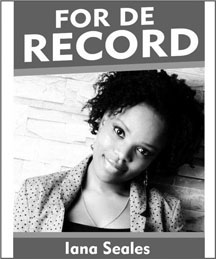The issue of gay equality remains unresolved and contentious here despite the vigorous efforts of activists and supporters to promote a more open and equal society. Change, we are told, is not in the near future; no equal protection before the law and no decriminalisation of homosexual conduct.
But while we are expected to wait – no one knows how long – for formal discussions of the issues and consequent reforms, the prejudicial attacks and the violence against our Lesbian, Gay, Bisexual and Transgender (LGBT) citizens persist.
The majority of these homophobic attacks go unreported. Take for example, the brutal beating inflicted on a transgender woman last year at an East Coast Demerara village. Or the beating of a 15 year-old gay teenager by a gang at a community celebration, also on the East Coast.
 More recently, on April 7 this year, four transgender women were targeted in a drive-by shooting. At the time, the women were plying their trade as sex workers at the corner of King Street and North Road. Their experiences at the police station and hospital following the attack opened them up to additional hostility.
More recently, on April 7 this year, four transgender women were targeted in a drive-by shooting. At the time, the women were plying their trade as sex workers at the corner of King Street and North Road. Their experiences at the police station and hospital following the attack opened them up to additional hostility.
The foot-dragging in the drive-by shooting case led to protests and pickets, and criticisms from the LGBT community that the government and, in particular, the Ministry of Labour and Human Services are not doing enough to protect the LGBT individuals. Prior to this attack, the LGBT community had staged public demonstrations condemning homophobic killings after several gay men were murdered.
In the context of the “hate-crime assaults,” entrenched hostility towards gay persons, and the religious condemnation of gays as being “detrimental to society,” it’s reasonable to conclude that people want to suppress the visibility of gays and lesbians in our society.
But this is not going to happen. Certainly not when many of us are prepared to speak up against these wrongs and to openly condemn them. While some of us silently support the gay movement and only wish to add our voices if we’re not being filmed or recorded, a growing number of us are coming forward to stand in solidarity with our LGBT community.
Take, for example, the annual film festival organised by the Society Against Sexual Orientation Discrimination (SASOD). Celebrated under the title ‘Painting the Spectrum,’ it has attracted activists, members and supporters in growing numbers. Now in its tenth year, the festival is challenging us to explore the issue of sexual diversity and to talk about gay love and gay equality.
In May, SASOD launched its Cine Campaign to coincide with International Day Against Homophobia and Transphobia (IDAHOT), which is observed on May 17 annually. During the campaign, SASOD asked supporters to post selfies with notes decrying the discrimination meted out to Guyana’s LGBT persons on its Facebook page. The response was tremendous. The group’s Facebook page was swamped with selfies from numerous persons, some of whom I have had conversations with in the past and had concluded that they were homophobic.
It was touching to see many of us come out in support and on Facebook too! One of the images that have stayed with me is a photo of young police ranks from the Felix Austin Training College holding up a poster which read: “We are against homophobia.”
There is some progress. But at the same time, there is still a whole lot of discrimination, and hate. When you say “hate,” people often object, saying it’s too strong a word, but what’s the opposite of love?
Even if the majority of us disapproves of homosexuality on moral or religious grounds, this does not justify attacking, criminalising, or discriminating against the LGBT community here.
Joel Simpson, Co-Chair of SASOD says gays face an uncomfortable reality almost daily in Guyana even though the community is gaining wider support, and many are starting to give up on the country.
“The thinking now is that people feel they are not safe in Guyana… from the prejudicial attacks to the lack of investigations and the sloth in the delivery of justice. I can tell you that people are looking for ways to leave and they are leaving,” Simpson told me last month.
Gays here are being increasingly exposed to violent physical attacks; they are being maimed, and even murdered, as alleged by LGBT persons, just for being different. Simpson said empirical evidence is being gathered on the exodus, which he rightly described as “an economic cost to our country.”
Within the last few years, gay and transgender persons known to Simpson have successfully filed for asylum in North American countries and they have packed up and left.
These are young, educated persons, who feel shut out in our society and, in some instances, are tired of the incessant attacks and ridicule.
“People simply do not feel equal,” Simpson said, noting that increasingly more gays are looking for opportunities to leave.
When Simpson and other activists raise these issues, some complain that they are pushing for “new rights” or “special rights.” Just last month, Presidential Advisor on Governance Gail Teixeira spoke on the issue of gay rights and referred to it as a “a new right.” And according to her, there is no fast track to such new rights.
But there is nothing new about the right to freedom from discrimination and the right to life and security of person. These and other rights are universal enshrined in international law.
According to the UN Human Rights Committee, the international expert body that monitors compliance with the International Covenant on Civil and Political Rights (ICCPR), governments have an obligation to protect individuals not only against violations by the State, but also against acts committed by private persons or entities that would impair the enjoyment of basic rights.
The UN committee is clear on the issue of equality: all are equal before the law and are entitled without any discrimination to equal protection of the law.
The core legal obligations of States with respect to protecting the human rights of LGBT people include obligations to:
Protect individuals from homophobic and transphobic violence.
Prevent torture and cruel, inhuman and degrading treatment.
Repeal laws criminalizing homosexuality.
Prohibit discrimination based on sexual orientation and gender identity.
Safeguard freedom of expression, association and peaceful assembly for all LGBT people.
As Simpson pointed out during our conversation, Teixeira and her government have to do much more to protect the rights of gay persons in Guyana. Perhaps they can start by recognising that gays are not asking for any “new rights.”
While some in our country continue to depict LGBT people as immoral, sinful, and deviant, Simpson and many others are actively working to end the harassment and discrimination the LGBT community here faces.
Being attracted to someone or having consensual sex should never be grounds for discrimination and abuse. Further, no one should have to live in fear because of their sexual orientation.
I will end this discussion, for now, on this note. Pope Francis, head of the Catholic Church of which I am member, said back in May 2013 that he would not judge gay people who are earnestly seeking God. “If a person is gay and seeks God and has good will, who am I to judge?” the Pope said. And I say the same to all the Christians who are living holier than thou lives, and have been swift to condemn me for supporting the LGBT community–who are you to judge?
Have a question or comment? Connect with Iana Seales at about.me/iseales

